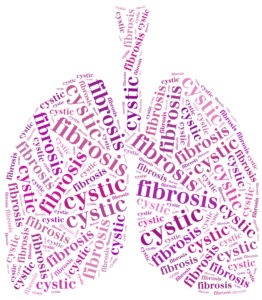
After a difficult birth in which your baby suffered an injury, you may be wondering, what is neonatal cerebral ischemia? This condition occurs when the baby’s brain does not receive oxygen-rich blood because of a blockage in the arteries that serve the brain. If not caught in time, this can lead to a brain damage for the newborn.
Some types of cerebral ischemia in babies are minor in nature, and the baby is able to regain the majority of brain functions as he or she ages. Other times, the brain damage is severe, leading to the loss of brain cells that result in permanent disability or even death.
People of any age could end up with cerebral ischemia and a stroke. However, neonatal cerebral ischemia is limited to infants, usually occurring because of a brain injury during delivery or after birth that could relate to a mistake that a doctor made.
Understanding Cerebral Ischemia in Infants
When an infant has some sort of blockage in an artery to the brain, this causes a reduction in the blood flow, resulting in cerebral ischemia, also called brain ischemia or cerebrovascular ischemia.
Without the proper levels of oxygenated blood feeding the brain cells, the baby could suffer some sort of damage to the brain tissue that may become permanent, causing a few different disabilities and life-long conditions for the infant.
The two types of brain ischemia that may occur include:
- Transient ischemic attack: a temporary loss of brain function because of minor damage to the brain, perhaps because the blockage in the brain moved out of place on its own.
- Ischemic stroke: a significant blockage in an artery in the brain, leading to permanent brain damage, including the possibility of a loss of brain cells.
Why a Baby Suffers From an Ischemic Stroke
An ischemic stroke, the most common form of stroke, occurs far more frequently than a hemorrhagic stroke, which is when an artery serving the brain ruptures. According to the Children’s Hospital of Philadelphia, newborns have a chance of suffering a stroke in a frequency of about 1 in 4,000 births.
Some of the reasons a child may suffer a neonatal ischemic stroke include:
- Blood clot: the child has a blood clot in the brain that may have formed because of some sort of injury to the head or brain during delivery or after birth.
- Disease: a child who has sickle cell disease may have a narrowing of arteries leading to the brain, creating a greater chance of a blood clot becoming lodged and causing a stroke.
- Heart problems: a child is born with a heart valve problem or an infection in the heart, which may cause the formation of blood clots that travel to the brain.
"If your child was born with a birth injury, or cerebral palsy, we can help."
Symptoms of Brain Ischemia in Childbirth
Spotting the symptoms of neonatal cerebral ischemia in a newborn is not always easy for a doctor, especially if it is a mild case. Whereas an adult could verbally let a doctor know about symptoms, the doctor caring for the infant must be on the lookout for symptoms, especially if the doctor knows that the delivery was a difficult one.
Some of the symptoms you should look for in the newborn include:
- Seizures
- Lack of movement
- Weakness in one side of the body
- Extreme fatigue
- Blindness in one eye
- Loss of consciousness
As the child ages, he or she may begin missing developmental milestones, such as learning to walk or speak.
Long-Term Health Problems
Epilepsy associated with stroke in infants affects about 470,000 children in the United States, according to the Centers for Disease Control and Prevention (CDC).
Cerebral palsy is another problem that can occur after a child suffers an ischemic stroke.
We Will Work Tirelessly To Help You Receive a Fair Settlement
If your doctor informs you after the birth of your baby that your child has suffered a stroke, it can be devastating news. You may not be familiar with this condition in babies, so you may be wondering what a neonatal cerebral ischemia is. You may also be wondering why this happened.
Sometimes, the formation of brain ischemia in a newborn is no one’s fault. Other times, the doctor made an error in diagnosis or caused an injury to the baby during the birthing process, which led to the ischemia.
The Birth Injury Lawyers Group is ready to undertake a free review of your case, determining whether you have grounds for a medical malpractice lawsuit. We are ready to stand up for your family’s rights to seek damages for medical bills, lost wages, and pain and suffering. Contact us today at (800) 222-9529.
"We are committed to helping families who have suffered medical negligence."
